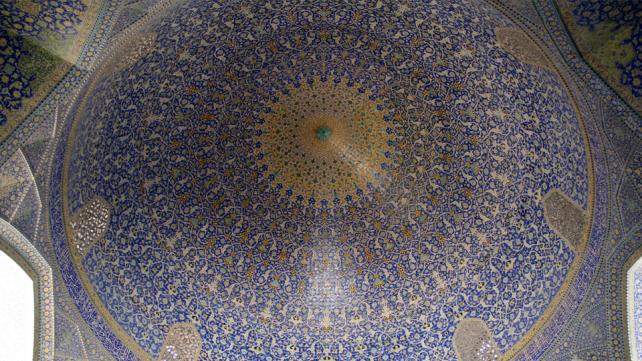
Shia-Sunni violence has been on the rise in the last few years, particularly in Iraq and Pakistan. Every month, it seems, scores of Shias and Sunnis are killed in a vicious tit-for-tat between extremists on both sides. Many of the victims are killed as they pray or are in mosques.
These incidents belie the reality of Shia-Sunni coexistence and cooperation. In Iraq, it is estimated that up to 30 percent of marriages are between Shias and Sunnis; victims of violence between the two groups frequently attend each other's funeral prayers; one group often helps the other's victims after an incident.
This silent majority must come together through dialog to defeat the terrorists who have been responsible for these killings.
Seven reasons why a dialog between Shia and Sunni is needed:
- Theological differences between Shia and Sunni are old and are better left for God to judge, as He knows best and has said in the Quran that He is the final judge of religious disagreements. The killing of Shias or Sunnis will not resolve these disputes.
- The principle of "no compulsion in matters of faith" (Quran 2:256) is not just limited to Muslim-non-Muslim relations. It applies to Muslim interpretations of Islam as well. This instruction of God serves as a guideline for the Muslim community to not impose one's interpretation on others. That is why throughout history, not only have Hanafis and Shafis worked with each other despite differences, but Shias and Sunnis have lived and worked side by side with each other as well.
- When human beings sit down and talk to each other, they learn to respect each other.
- Dialog allows parties to understand each other better by allowing participants to acquire direct knowledge about beliefs instead of relying on propaganda and stereotypical images. (Quran 49:6-12)
- Dialog will isolate the extremist fringe. It is a major sin to kill a human being. Killing a human being is like killing the whole of humanity. By talking to each other, Shias and Sunnis will be able to save lives, which is like saving the whole of humanity. (Quran 5:32)
- Revenge is not justice. Killing in revenge is unjust, inhuman, and un-Islamic. Retribution through the state, which the Quran sanctions via capital punishment does not amount to individuals taking the law in their hands or killing an innocent person in revenge. The call for, "an eye for an eye," does not mean an innocent eye for an innocent eye.
- Even if some Shias and Sunnis consider each other enemies, the Quran asks us to be just even toward one's enemy "O you who believe! Stand out firmly for God, as witnesses to fair dealing, and let not the hatred of others to you make you swerve to wrong and depart from justice. Be just: that is next to Piety: and fear Allah. For Allah is well-acquainted with all that you do." [Quran 5:8]
Some considerations for dialog:
The Shia community like Sunnis is diverse. There are many differences between one Shia group and another. This is why it is important that dialog between Sunnis and Shias becomes a movement and a process throughout society instead of everyone waiting for one high powered dialog to yield some results at the leadership level. Here are some preliminary thoughts on how a dialog between Shias and Sunnis can be beneficial for each side.
Goals of dialog
Although I consider dialog a process that is beneficial to all, it is necessary that everyone involved recognize some of its tangible benefits. The following are a set of achievable goals for Shia-Sunni dialog.
- Developing an agenda of common concerns
- Identifying issues of conflict
- Issuing joint Fatwas against the killings
- Isolating extremists on each side
- Preventing a potential conflict or mediating an existing conflict
- Education to clarify stereotypes about each other
- Setting up joint task forces to deal with outstanding issues
Who should participate in the dialog
- Imams and caretakers of Masjids
- Students of Madrassas
- University students
- National level religious leadership
- Shia and Sunni media persons
- Shia and Sunni businesspersons
Mechanism of dialog
Dialog is a process that should occur at all levels of society. In the 1960s in Pakistan, when Shia- Sunni fights were far less significant, city officers used to convene joint meetings of Shia and Sunni leaders to chalk out Muharram plans so no confusion would result in rioting. These government-arranged dialogs helped keep conflicts at a minimum. Considering the current level of mistrust, it will be beneficial if civil society takes initiatives for dialog at all levels of society.
- Private Dialog: Host roundtable discussions initially at the top leadership level that should later expand to include
- thers working on different committees.
- Public Dialog: Shia and Sunni both use public forums and media to speak to each other's audiences
- Visiting each other's Masjids to enhance confidence and to demonstrate that they are not supportive of the extremists who isolate each other.
- Shia-Sunni Dinners: Masjids and social associations should invite Shia and Sunni friends to eat with each other publicly.
Publicity of dialog
Publicity of the dialog will generate hope and confidence in it and will empower those in dialog vis-a-vis the extremists.
- Media should facilitate self-criticism and introspection by the religious leadership
- Those leaders who participate in dialog should be recognized through interviews, reports, and documentaries
- Investigative reports should be aired and published about the truth behind sectarian propaganda
- It is important for society to honor those Shia and Sunni leaders who take initiative and demonstrate leadership in participating in dialog. Sunnis, being members of the majority community, have the higher level of responsibility towards initiating and participating in dialog
Sponsors of Dialog
Funding always facilitates the beginning of a process in civil society. Every task requires time and money. While participating organizations and individuals can take care of their own costs, it would be very rewarding if some individuals and businesses came forward with funds to sponsor and host these dialogs. American Muslims can start a dialog in North America where there is no conflict in the Shia-Sunni community and then inspire and sponsor dialogs where it is needed the most.
Beyond Dialog
Considering that Shias and Sunnis live side by side in the Muslim world, they are not unknown to each other, and considering that most of them have nothing to do with the current extremism which is responsible for the killings and violence, it is important for the moderate majority to come up with a few initiatives which are beneficial for Shia- Sunni harmony. These could be communicated in the print form or in any other media. They should discuss the following themes and/or use the methods outlined here:
- Khutba points which can help harmony
- What type of talk can hurt at personal level
- What is common between Shias and Sunnis
- Common Hadith between Shias and Sunnis
- What is hate speech
- Islamic teachings of tolerance
- A Shia-Sunni security force, jointly safeguarding each other?s houses of worship will be a significant blow to the extremist agenda.
Conclusion
Shia-Sunni conflict and sectarian terrorism is tearing our community apart.
The Quran, the Prophet Muhammad, peace and blessings be upon him, the Kaba and the five pillars of Islam are common to Shias and Sunnis. That is why no one in Islamic history has stopped Shias from performing Hajj, although the Kaba has always been in the control of Sunnis. Even today, when those currently in charge of the Kaba are part of a predominantly Salafi establishment, which maintains extremely negative views of Shias, Shias like other Muslims are free to perform Hajj. Shias, by the same token, since the 1979 Iranian revolution, are ordered by Imam Khomeini to pray behind these same Salafi imams instead of praying separately.
This mutual recognition gives us hope that a dialog can bear fruit of peace and harmony between both the communities.
If you are an imam/khateeb, please sign and fax or email the attached resolution which was adopted by the Dialogue held on Dec. 25, 2006 in Chicago.
If you are not an imam, get your masjid and imam to sign and then fax or email the attached resolution.
Photo Attribution: Patrickringgenberg - http://commons.wikimedia.org/wiki/File:Isfahan_Royal_Mosque_cupola.JPG

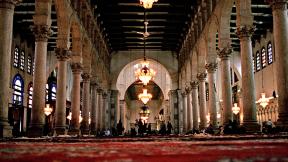
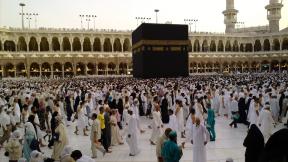
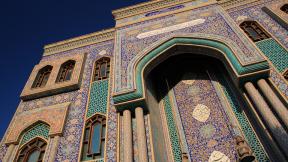
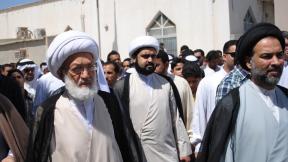


Comments
Salaam, I think most of the comments about the article have been positive. i also think though that we need to read everyone's history, not just our own. I don't think we should just "leave it to Allah" to decide our differences, we need to study about each other. Brother Ray thinks the main problem for unity is that the Shi'a have anti-Sahaba notions. But what would make the Shi'a say such things and why? The Sahaba were not sinless...they fought wars against each other and did a lot of things which are very hard to justify. I found a lot of things out myself just by opening up our history. Anyway, it's not good enough just to point fingers at one side...The Shi'a have their reasonings which a person has to study, we can't just compare them to Christianity and say Ashura is the same as the passion of the Christ! Fine we all have our differences, but I haven't met a Shi'a who says that Sunnis are to blame for killing Hussain...actually my Shi'a friends tell me that his killers don't even qualify to be Muslim! This is because the Prophet said that Hassan and Hussain are the leaders of the youth of paradise. (hadith) You think a Muslim is going to go kill such a person?!There were "shi'as" who also helped kill Hussain, but they are not called anything but sellouts to the oppressive Ummayad government.Also, if we look at our Sunni history, the Shi'a have been oppressed for hundreds of years by the majority. How many of us consider Shi'as to be just like the Jews or worse but hardly anyone knows what they really say. I was surprised when I used to go to MSA gatherings and hear the ignorance...we have a lot of these stereotypes. Just in nearby Dearborn the Sunni MSA president was beaten up by a bunch of people who didn't want Shi'as getting more included in the organization. This is not the way to go about things, we should be more ready to work with each other than anyone else!
Location
Your recommendations are well and good. But you need to set the fix of the sectarian devide in macro and micro levels. The issue of Hussein's death is similar in vein of passion of Christ syndrome amongst christians. Like many christians who hold jews liable for the crufiction of jesus and at the same time claiming redemption through his" supposed' crucifiction, shias find sunni's progenitors responsible for the death of Ali & Hussain. In reality the problem lies in the islamic nation going back to the tribalism instead. So going back to macro level of the devide if the shia's yearly passion play for their redemption is an ongoing in places it is openly permitted and the indoor fiery lectures meant to keep the fires hatred burnibg till the doom's day.Unless shia's rectotfy their thought of anti sahaba pronounciations the unity is a dream unfulfilled. I doubt seriously that these practices can be by gone any time soon. It is like pope deciding to shutter vatican. salam
Location
salam dearyour idea about dailog is excellent and as a muslim if i have money i will host any meetings or dailogs.too be honest with you what shias say is about kholafa rashiden is upseting because they were the compains of prophet m sallla wala salm
Location
alhamdulillah if evry muslim place Allah first priority in life no doubt all problems can easily be resolved quote: innassolati wanusuki wamahyaya wamamati lillahirobbilalamin allahuakbar
Location
salam its a grate idea very pleased to hear this with some one but if this thing would happend atleast 20 years bofore millions of human lives would be saved
Location
Shi'ism is considered to be the 5th school of thoughts of Islam by Al-Azhar university. Whoever pronounced "La Ilaha Illallah Muhammadur Rasullallah" - is a muslim; anybody, who says that I am a better muslim than you - God helps him. Now, there are lots of different groups in Shi'a; they might have different opinion - as long as they believe in Allah, Muhammad(SM) as a last Rasul (prophet), is included in the Ummah.
Location
salamMashalla very nice article, we must put our differences aside if we want islam to advance.
Location
FASCINATING, GREAT, BRILLIANT! THIS IS DIVINE IDEA! THEN WHEN? WHERE? DO IT RIGHT HERE RIGHT NOW!
Location
I completly agree with your reccomendations. I am an active voulunteer at a shia mosque which many sunni brothers and sisters attened. I try and make everyone welcome and encourage others to do the same. Unity starts locally in our hearts!
Location
salam alaykum.Praise be to Allah. it has allways my dream to see all muslim united even though we differ in ideology . We can only practice whatever we belife if there is peace .Let our leaders come together and dialogy so that preaching poisinous ideals about eachother can be eradicated. Maasalam
Location
Pages
Add new comment